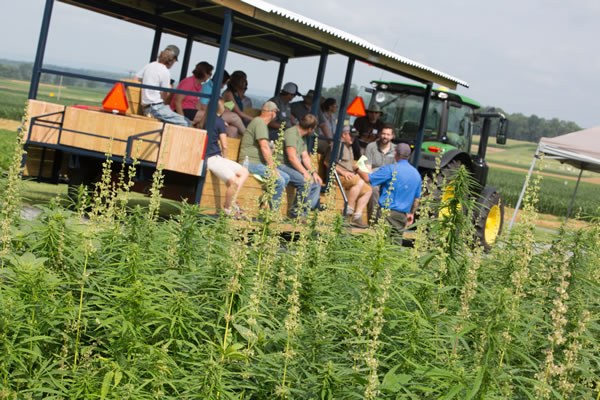Need to better understand food safety? Want to know more about livestock grazing? Thinking about starting a business but don’t know where to begin?

Penn State Extension—transforming lives through knowledge.
Educational programming designed with you in mind.
Look no further—Penn State Extension offers a wealth of cutting-edge learning opportunities to meet your needs. Gardening, farming, budgeting, wellness, nutrition, natural resources, and community development are among the many topics covered.
Our educators actively engage customers through in-person learning experiences, including workshops, conferences, on-site consultation, and more. Our digital experience provides on-demand access to articles, videos, and online courses, all day, every day.
Penn State Extension—transforming lives through knowledge.
Penn State Extension program team members live and work alongside you, so they have a stake in ensuring our products and services better our communities. Our program teams also have unique partnerships with county and state governments, and facilitate collaboration with industry, non-government organizations, and others, to deliver education on an array of subjects focusing on:
4-H Youth Development
Empowers young people with the skills to lead for a lifetime. It's an experience that includes a mentor, a hands-on project, and a meaningful leadership opportunity. Youth choose projects to fit their interests and abilities. More than 150 projects are available, including gardening, rocketry, raising animals, creating websites, babysitting, and more.
See Pennsylvania 4-H at Penn State Extension.
Agronomy and Natural Resources
Focuses on the education of best management practices for field crop production and the conservation of soils and other valuable resources. Penn State Extension educators share research and the latest technologies to advance agricultural production, with an emphasis on sustainable practices.
See Forage and Food Crops, Pests and Diseases, Forests and Wildlife, Water, and Energy at Penn State Extension.
Animal Systems
Emphasizes enhancing and maintaining the health and welfare of equine, poultry, dairy, and livestock animals and their contribution to the food system. Animal experts impart knowledge on animal health and welfare, nutrition, breeding, marketing, and business management.
See Animals and Livestock at Penn State Extension.
Energy, Entrepreneurship, and Community Development
Works with public, industry, business, government, education, and nongovernmental organizations to develop strategic planning, workforce analysis, and supply chain development, as well as new and renewable energy sources. Community planning and engagement is an emphasis of the learning.
See Business and Operations, Community Development, and Energy at Penn State Extension.
Food, Families, and Health
Promotes the health and well-being of individuals, families, and communities across the lifespan through programs that focus on personal, family, and intergenerational relationships; human development; strengthening families; healthy aging; and sustainable quality of life.
See Youth, Family, and Health at Penn State Extension.
Food Safety and Quality
Provides science-based food safety and quality education, research, and outreach activities for farmers, food processors, food handlers, and consumers across the Commonwealth to prevent foodborne illness. An important part of the programming focuses on helping growers and commercial food companies comply with the Food Safety Modernization Act.
See Food Safety and Quality at Penn State Extension.
Horticulture
Develops our understanding and management of agronomic and horticultural crops and managed landscapes, which are the foundation for managed ecosystems, food and fiber production, landscapes, and environmental quality to enhance human environments.
See Forage and Food Crops and Trees, Lawns, and Landscaping at Penn State Extension.
Youth who participate in 4-H are 41 percent less likely to engage in risk behavior, such as drug abuse. Further, 99 percent of all 4-H members participated in a community service project last year, each saving their community $100 to $499.

